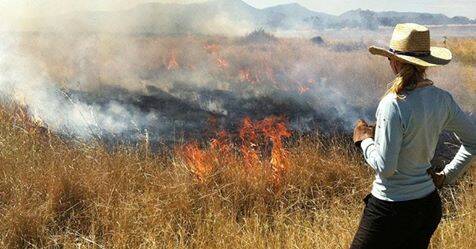
The NSW Rural Fire Service (NSW RFS) is advising landholders and managers to ensure they have undertaken proper preparations before conducting any burn-offs on their property.
Subscribe now for unlimited access.
$0/
(min cost $0)
or signup to continue reading
NSW RFS inspector Guy Duckworth said landholders were encouraged to proactively reduce fuel loads on their property while ensuring burns are conducted safely and legally.
“Every landholder has a responsibility to prevent fire from spreading from their property and there can be serious consequences for people who light fires and leave them unattended,” Inspector Duckworth said.
“A person who lights a fire without the required approvals is guilty of an offence, with penalties including large fines and/or imprisonment.
“History has shown that problems occur when people do not adequately supervise fires and an escaped hazard reduction can be very difficult for firefighters to contain.”
Inspector Duckworth said residents must take current conditions and weather forecasts into consideration before starting a burn.
“The primary concern should always be safety, so never conduct a burn if conditions are not suitable,” Inspector Duckworth said.
“There are alternatives to burning, including hand clearing, mowing, or slashing areas around key assets on the property.
“Also, remember to notify your neighbours and local fire authority 24 hours before starting a hazard reduction burn.”
Inspector Duckworth said motorists in the area should slow down and take extra care if driving through smoke from a hazard reduction burn, keep windows up and turn their headlights on.
“Please only report unattended fires to Triple Zero (000),” he said.
“NSW RFS members can provide advice about fire permits, hazard reduction certificates, environmental approvals, weather forecasts and how best to prepare and conduct a burn.
“The NSW RFS has a number of publications available through local brigades or Fire Control Centres, which can assist landowners in planning and carrying out fire related activities safely.”

